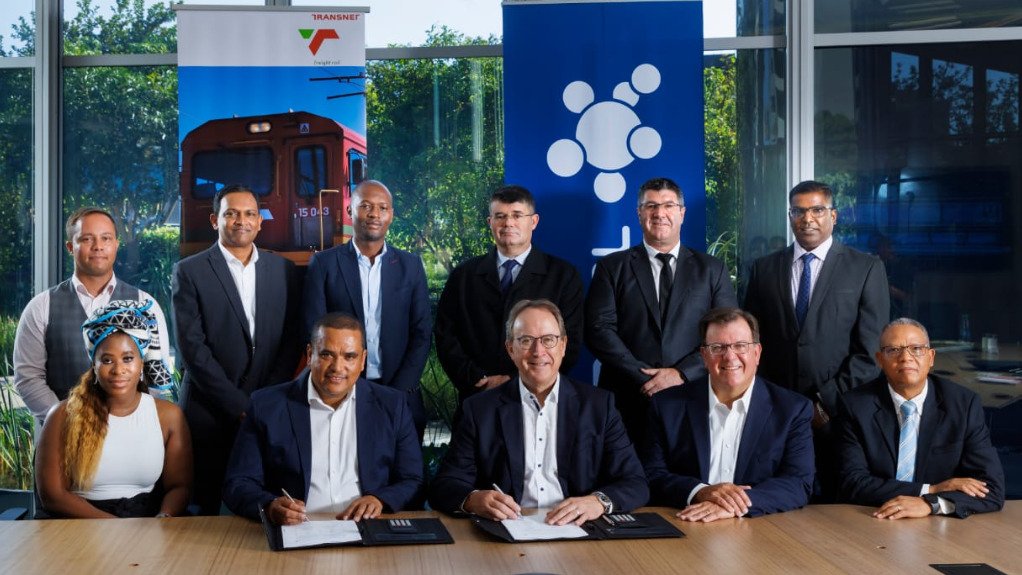Both Cabinet and organised business have lauded the five-year public-private partnership agreement between Sasol and Transnet Freight Rail (TFR), under which the energy and chemicals group will fund the maintenance and repair of a dedicated fleet of 128 ammonia tankers.
In a statement following its February 28 meeting, Cabinet welcomed what it described as a “first-of-its-kind” partnership agreement, which it said would advance the country’s Freight Logistics Roadmap, drafted to turn around the underperforming sector.
Likewise, in welcoming the appointments of Michelle Phillips and Nosipho Maphumulo as CEO and CFO respectively at Transnet, Business Unity South Africa said the State-owned utility’s recovery would be assisted through the signing of “mutual cooperation agreements” between Transnet and its customers.
Neither Sasol nor TFR were willing to disclose the contract value, but Sasol CEO Fleetwood Grobler previously underlined the risk that “persisting supply-chain challenges in South Africa” posed to its chemicals business.
Sasol Chemicals produces and sells more than 540 000 t/y of ammonia, which is used to make a variety of fertilisers and industrial chemicals for the agriculture, mining, textile and metalworking industries and supplies to key clients such as AECI in Modderfontein had been disrupted by the lack of availability of rolling stock.
AECI told shareholders shortly after the Sasol-TFR deal was announced that it was still pursuing a hybrid sourcing strategy to reduce its dependence on South African supply and had already successfully imported ammonia through the Port of Richards Bay.
Sasol and TFR confirmed with Engineering News that no new wagons would be purchased under the agreement.
Instead, the focus was on refurbishing, with the support of Transnet Engineering, the existing assets to enable their full utilisation, while minimising the need for significant capital investment.
Sasol base chemicals VP David Mokomela confirmed that the agreement would secure the transport capacity needed by the group’s Secunda and Sasolburg facilities, while acting TFR CEO Russell Baatjies described the agreement as a significant step toward addressing the industry’s current capacity challenges.
“These trains will operate primarily on the Secunda-to-Isando and Sasolburg-to-Isando routes, which are in the Central Corridor,” the companies confirmed in response to questions posed by Engineering News.
“The Richards Bay service (through the North Corridor) may be considered, depending on market demand and capacity availability,” they added.
Besides rolling stock repair and maintenance, the companies confirmed that other investments were also being implemented on the Secunda-Isando corridor.
“These include the opening of rail maintenance facilities in Secunda … [and] other investment types that are currently under review, all aimed at enhancing rail efficiency for the benefit of the industry.”
Both Sasol and TFR insist that the transaction, which covers 128 ammonia rail tankers in a bigger fleet of 350, did not require approval by the competition authorities, but they confirmed that it was assessed by the Competition Commission as well as internal legal counsel.
“As this is specialised equipment, it is not open to others.
“However, TFR is engaging other players who may wish to also pursue a similar approach with the entity.”
EMAIL THIS ARTICLE SAVE THIS ARTICLE ARTICLE ENQUIRY
To subscribe email subscriptions@creamermedia.co.za or click here
To advertise email advertising@creamermedia.co.za or click here











